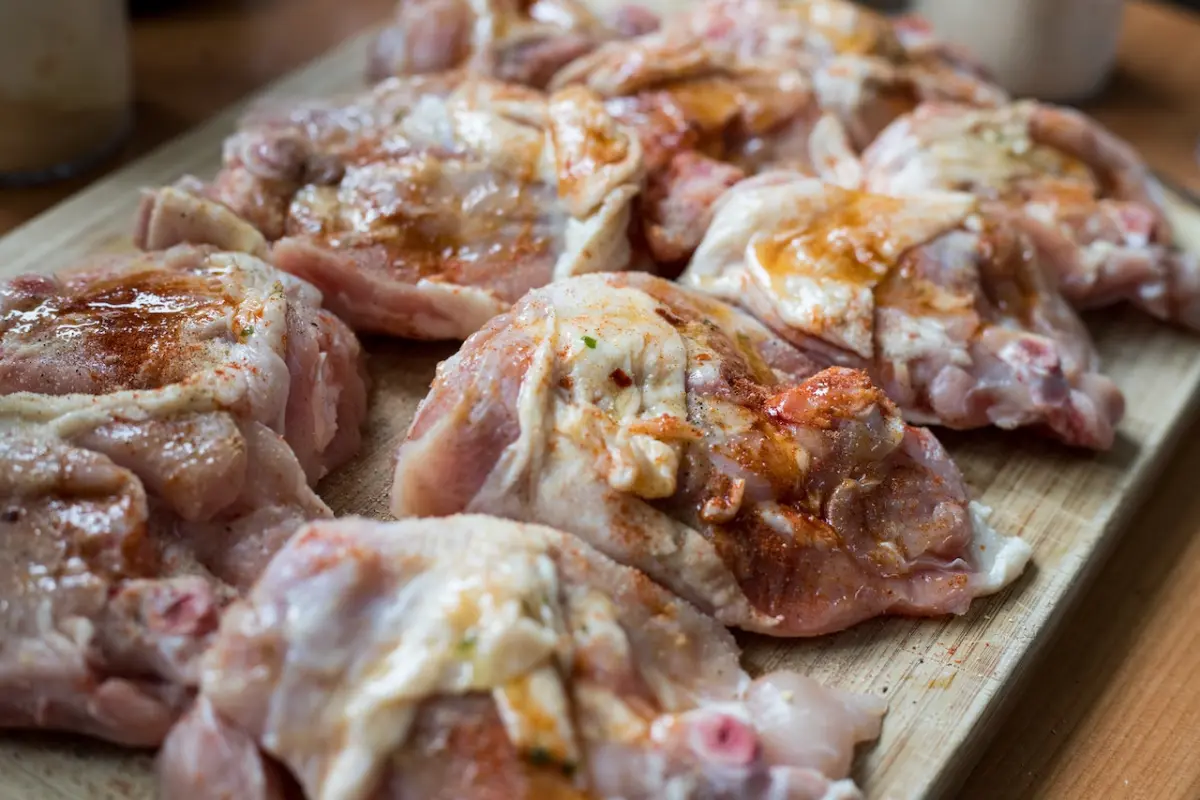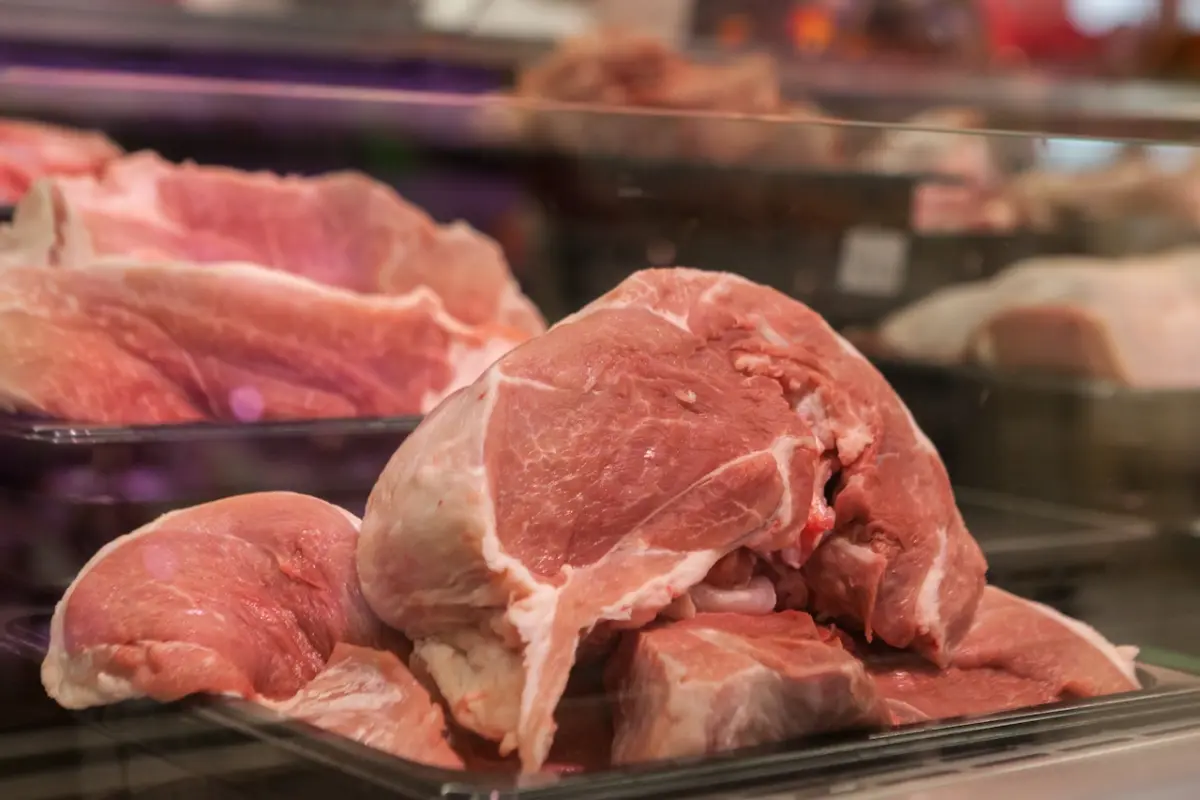Ferrets are carnivores, their diet should consist almost entirely of meat. Feeding your ferrets raw meat is a great way to provide them with the nutrition they need to thrive. In today’s comprehensive guide, we will discuss the benefits of feeding ferrets raw meat, the types of raw meat to feed them, and how to safely prepare and serve raw meat to your ferret.
Benefits of Feeding Raw Meat to Ferrets
Feeding raw meat to ferrets has several benefits, including:
- Natural Diet: Raw meat closely mimics the natural diet of ferrets in the wild. This ensures that they receive the appropriate nutrients and enzymes that are essential for their overall health.
- Dental Health: Chewing on raw meat and bones helps to keep a ferret’s teeth clean and free from tartar buildup, which can lead to dental issues.ferret raw meat
- Improved Digestion: Raw meat is easier for ferrets to digest than processed or cooked foods, reducing the risk of gastrointestinal issues.
- Better Coat Condition: A raw meat diet can improve the condition of a ferret’s coat, making it softer and shinier.
- Weight Management: Feeding raw meat can help prevent obesity in ferrets, as it is typically lower in carbohydrates and sugars compared to processed foods.

Types of Raw Meat to Feed Ferrets
When feeding raw meat to your ferret, it’s important to provide a variety of protein sources to ensure they receive a balanced diet. Some suitable raw meats for ferrets include:
- Chicken: Chicken is a lean protein source that is easily accessible and affordable. You can feed your ferret raw chicken wings, necks, or thighs.
- Turkey: Like chicken, turkey is a lean protein source that can be fed to ferrets. Offer raw turkey necks or wings as part of their diet.
- Rabbit: Rabbit meat is a natural prey for ferrets in the wild and can be an excellent addition to their diet. Whole or partial raw rabbits can be fed to ferrets.
- Lamb: Lamb is a good source of protein and fat for ferrets. You can feed your ferret raw lamb ribs or other cuts of meat.
- Beef: Beef can be fed to ferrets in small amounts, as it is higher in fat than other meats. Offer raw beef heart or other lean cuts.
- Fish: Fish can be fed to ferrets occasionally, but should not be the main protein source in their diet. Opt for oily fish like salmon or mackerel, which are rich in omega-3 fatty acids.
- Organ Meats: Organ meats, such as liver, kidney, and heart, are nutrient-dense and should be included in your ferret’s diet. Aim to feed organ meats from a variety of animals.
Preparing and Serving Raw Meat
To safely prepare and serve raw meat to your ferret, follow these steps:
- Source High-Quality Meat: Purchase raw meat from a reputable butcher or supplier to ensure the meat is fresh and free from harmful bacteria.
- Freeze Meat: Freezing raw meat for at least 24 hours before feeding it to your ferret can help to kill any parasites that may be present.
- Thaw Meat Safely: Thaw frozen meat in the refrigerator, not at room temperature, to minimize bacterial growth.
- Serve Meat in Appropriate Portions: Cut raw meat into appropriately sized pieces for your ferret to easily chew and swallow. Remove any small bones that could pose a choking hazard.
- Clean Up: Wash your hands, utensils, and surfaces thoroughly after handling raw meat to prevent the spread of bacteria.
- Monitor Your Ferret: Keep an eye on your ferret while they eat to ensure they do not choke or struggle with the meat. Remove any uneaten meat after a few hours to prevent spoilage.
Considerations When Feeding Raw Meat to Ferrets
While raw meat can be a healthy and beneficial part of a ferret’s diet, there are some important considerations to keep in mind:
- Food Safety: Raw meat can contain harmful bacteria, such as Salmonella or E. coli, which can cause illness in both ferrets and humans. It is crucial to handle raw meat safely and hygienically to minimize the risk of contamination.
- Balanced Diet: Feeding a balanced raw diet is essential to ensure your ferret receives all the nutrients they need. A raw diet should consist of muscle meat, organ meat, and bones in appropriate proportions.
- Transition Period: If your ferret is used to eating commercial ferret food, transitioning them to a raw diet may take some time. Gradually introduce raw meat into their diet while monitoring their health and adjusting the proportions as needed.
- Veterinary Guidance: It is always a good idea to consult with a veterinarian experienced in ferret nutrition before making significant changes to your ferret’s diet. They can provide guidance on the best approach to feeding raw meat and ensure your ferret remains healthy.
Conclusion
Feeding raw meat to your ferret can be a nutritious and natural way to provide them with the essential nutrients they need for optimal health. By sourcing high-quality meat, offering a variety of protein sources, and following proper food handling and preparation guidelines, you can ensure that your ferret thrives on a raw meat diet.
